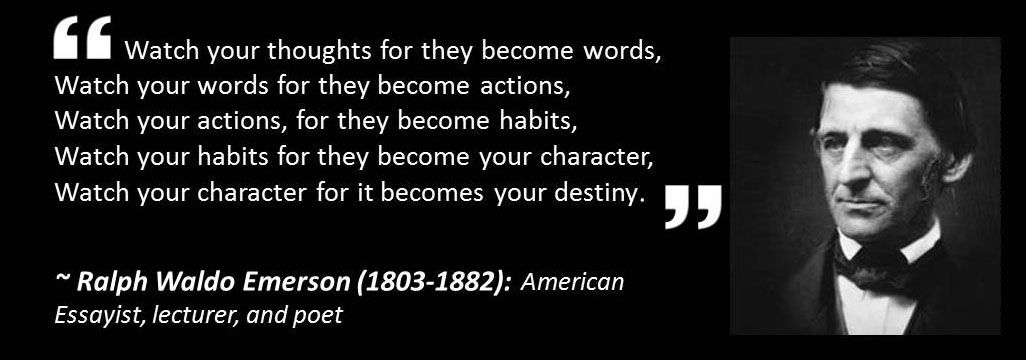So that we can sort the wheat from the chaff
Circular and repetitious trains of thought or jumping to confusions
I think therefore I have a thought: We are not slaves to our thoughts
We observe our thoughts and let go of them much of the time because it is impossible to translate everything we think every day into feelings… there simply isn’t enough time. What I am proposing here is that we consciously cultivate our innate ability to observe our thoughts so that it becomes a habit that we can draw upon as and when we need it; thus enabling us to effectively decide which thoughts are useful to us and which ones can be discarded.
Decoupling your trains of thought – breaking the link between a thought and a feeling
Ali describes this form of meditation “for people who suck at enlightenment!” as the single most powerful exercise he has done to improve his life… That statement certainly made me sit up and listen as it comes from a man who has a deep understanding of a rich smorgasbord of life-changing techniques. Below is a summary of this simple but very powerful exercise.
- First find a reasonably quiet place.
- Set a timer for five, ten or fifteen minutes.
- Close your eyes if it is safe to do so.
- Allow a thought to come to you as it surely will. Acknowledge it as a thought about a thing. For example, oh there’s a thought about washing the dishes, do not attach any meaning to this thought – there is nothing you can do about the situation at this time.
- Let this thought go, and another thought will come to mind.
- Acknowledge this thought as a thought about a thing and let it go.
- Keep with this process until your time is up.
When you first start doing this you will probably find that the thoughts come thick and fast. Ali Campbell likens it to a dam bursting and unleashing a torrent of thoughts. But over time you will find that the thoughts flow more slowly, as if you are sitting by a river bank observing the thoughts gently flowing by.
Once you have ingrained this practice into a habit you will know at the deepest level that you are not your thoughts. It is now clear that you are the observer of your thoughts. It is as if your thoughts are the trains that leave a busy station all night and all day. You are now free to decide which trains to take and when and where to take them. You no longer have to jump from train to train but are free to go where you want to go because you have the choice.



 RSS Feed
RSS Feed
